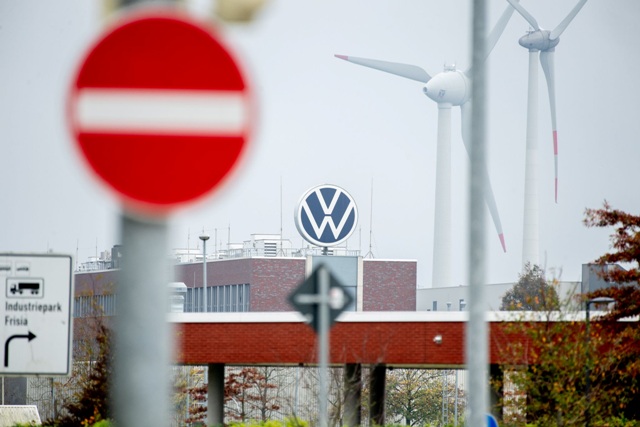Volkswagen commits $5.8 billion in deal with US electric car company Rivian

Of the $5.8 billion total investment, $3.5 billion will go toward a direct stake in Rivian, while $2.3 billion will fund the joint venture, with $1 billion of this set aside as a loan.
By Frank Johannsen, dpa I Wednesday, November 13, 2024
SAXONY – German auto giant Volkswagen has officially launched a joint venture with US electric vehicle manufacturer Rivian, committing to a $5.8 billion investment, $800 million more than previously planned, to accelerate its electric vehicle transition.
The partnership is expected to produce its first models based on Rivian’s advanced electric car technology from 2027, VW Group chief executive Oliver Blume said at the launch of the joint venture in Palo Alto, northern California, on Tuesday.
Volkswagen, Europe’s largest automaker, aims to leverage Rivian’s innovative electric and software architecture to streamline its own electric vehicle line-up.
The collaboration will focus on a range of technologies, including software systems, control computers and network architecture.
By adopting Rivian’s platform, Volkswagen hopes to tackle issues with its in-house software development, which has delayed model rollouts in recent years. The two companies announced the cooperation at the end of June, and in July, the German Cartel Office approved it.
The new joint venture is set to commence operations on Wednesday. It will be based in Palo Alto with further locations in Europe and North America planned.
Most of the team will be sourced from Rivian, with a few members joining from VW, said Rivian founder and chief executive RJ Scaringe. The venture will be jointly led by one manager from each company.
Of the $5.8 billion total investment, $3.5 billion will go toward a direct stake in Rivian, while $2.3 billion will fund the joint venture, with $1 billion of this set aside as a loan.
Blume said the rollout in 2027 starts with Volkswagen, followed by Audi, Scout, Porsche, and other brands. He noted that it covers all vehicle types, from compact cars to luxury and sports models, which enables high production volumes and cost reductions. However, Rivian’s technology is limited to electric vehicles.
For Rivian, this collaboration offers a crucial financial boost as the company continues to operate at a loss amidst a softening demand for electric vehicles in the US.
Despite delivering around 10,000 vehicles last quarter, Rivian reported a $392 million loss against $874 million in revenue.
In contrast, the VW Group achieved nearly 2.2 million vehicle deliveries in the same period, generating €78.5 billion ($83.3 billion) in revenue and securing a €1.58 billion profit after taxes, albeit reduced by economic pressures.
Founded in 2009, Rivian specializes in large SUVs and pickups, highly popular categories in the US. It also produces electric delivery vans for Amazon, which are now entering the European market.
Blume said the rollout in 2027 will start with Volkswagen, followed by Audi, Scout, Porsche and other brands. He noted that it covers all vehicle types, from compact cars to luxury and sports models, enabling high production volumes and cost reductions. However, Rivian’s technology is limited to electric vehicles.
For Rivian, this collaboration offers a crucial financial boost as the company continues to operate at a loss amidst a softening demand for electric vehicles in the US.

